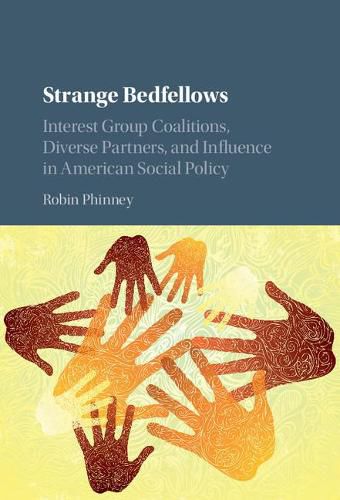Readings Newsletter
Become a Readings Member to make your shopping experience even easier.
Sign in or sign up for free!
You’re not far away from qualifying for FREE standard shipping within Australia
You’ve qualified for FREE standard shipping within Australia
The cart is loading…






How do advocates for the poor gain influence in American policymaking? Strange Bedfellows argues that groups representing low-income populations compensate for a lack of resources by collaborating with diverse partners in their lobbying efforts. This study develops a theory of coalition influence that explains the mechanisms and conditions of coalition formation and influence, and provides support for the theory through an analysis of one of the most significant social policy changes in recent history. The analysis shows that in the years preceding the federal welfare reform of 1996, advocates collaborated with diverse partners to influence policymaking, coalitions were used as a tool for pooling different types of resources and communicating information, and groups collaborated selectively across issues. Through rigorous theory and rich qualitative analysis, Strange Bedfellows sheds new light on lobbying and influence in policymaking while offering a theoretical framework for understanding the broader role of coalitions in American politics.
$9.00 standard shipping within Australia
FREE standard shipping within Australia for orders over $100.00
Express & International shipping calculated at checkout
How do advocates for the poor gain influence in American policymaking? Strange Bedfellows argues that groups representing low-income populations compensate for a lack of resources by collaborating with diverse partners in their lobbying efforts. This study develops a theory of coalition influence that explains the mechanisms and conditions of coalition formation and influence, and provides support for the theory through an analysis of one of the most significant social policy changes in recent history. The analysis shows that in the years preceding the federal welfare reform of 1996, advocates collaborated with diverse partners to influence policymaking, coalitions were used as a tool for pooling different types of resources and communicating information, and groups collaborated selectively across issues. Through rigorous theory and rich qualitative analysis, Strange Bedfellows sheds new light on lobbying and influence in policymaking while offering a theoretical framework for understanding the broader role of coalitions in American politics.